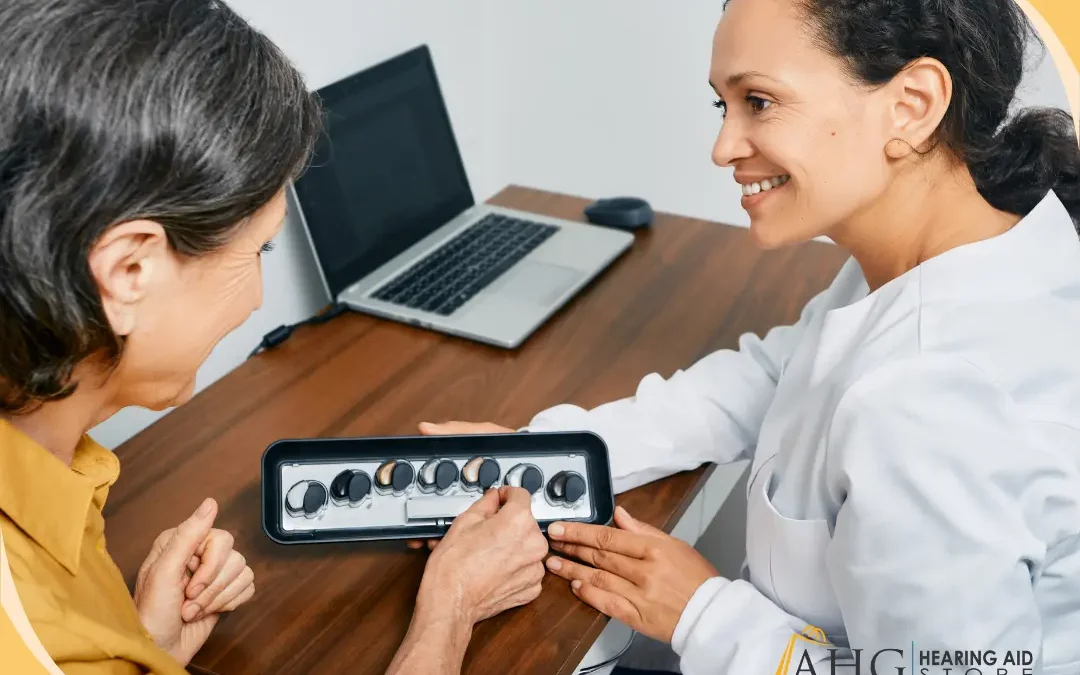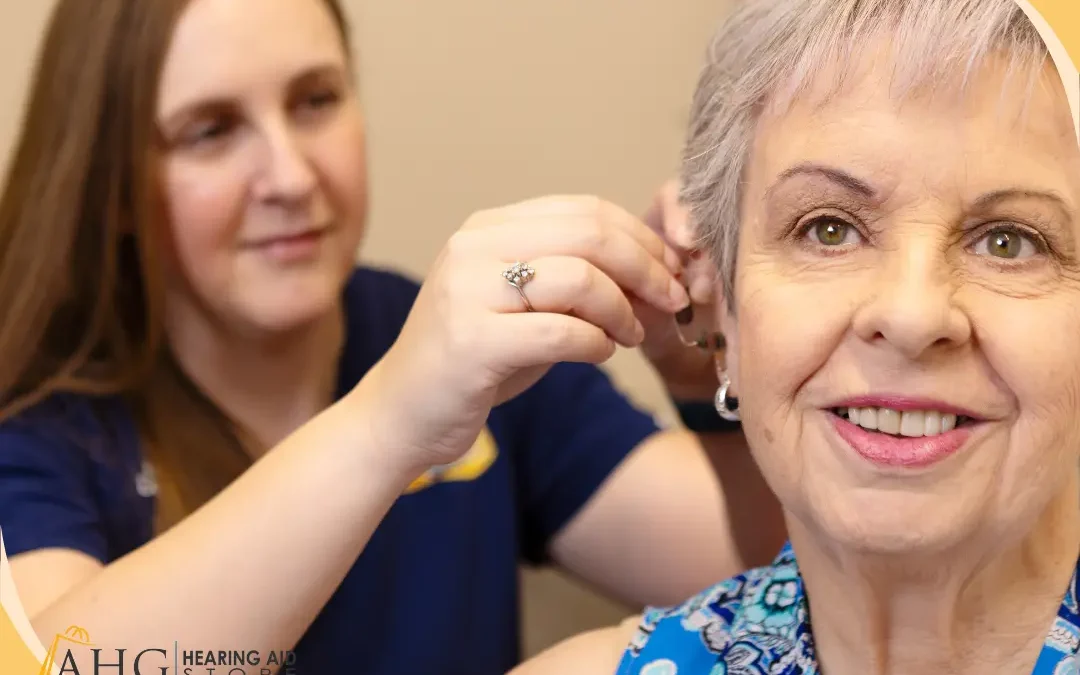
It’s easy to take your ears for granted, but hearing connects you to the world in ways you might not even realize until something changes. Whether it’s catching up with friends, enjoying music, or just hearing the birds chirp, your ears play a significant role in your daily quality of life. But how do you know when it’s time to check your hearing health?
Here, we’ll walk you through 10 signs that indicate you may need a hearing test. Then, we’ll show you why regular hearing checkups and working with an audiologist are important, as well as explain what to expect during and after a hearing test.
10 Signs It’s Time for a Hearing Test
If any of these sound familiar, it might be time to schedule a hearing test with your local hearing professional:
1. You Frequently Turn Up the Volume
Does your family keep saying, “The TV’s too loud!” or are you cranking up your phone to hear podcasts? If you’re consistently needing things louder than others, it could be a sign your hearing isn’t as sharp as it used to be.
2. Conversations Feel Like a Puzzle
Are you piecing together what people say, guessing at words, or just nodding along? Struggling to follow conversations, especially in noisy places like restaurants, is a classic sign of hearing loss.
3. You’re Asking “What?” All the Time
If “Can you repeat that?” is your catchphrase, it’s worth investigating. Sure, we all mishear sometimes, but if it’s happening a lot, it might just be time for a hearing test.
4. High-Pitched Sounds Are Fading
Do you have trouble hearing things like doorbells, phones ringing, or even kids’ voices? High-frequency sounds are often the first to go with hearing loss, and you might not notice it until it’s pointed out.
5. You Notice Ringing or Buzzing in Your Ears
That annoying ringing, buzzing, or whooshing sound (aka tinnitus) can be a sign of hearing issues. It’s like your ears are throwing a little tantrum, and a hearing test can help figure out why.
6. You Feel Left Out in Group Chats
Group conversations can be tough if you’re missing bits and pieces. If you’re withdrawing from social settings because it’s exhausting to keep up, hearing loss could be the culprit.
7. You’re Straining to Hear at Work
Are meetings, phone calls, or even casual office chatter feeling harder to follow? If your ears are making work stressful, it’s time to get them checked.
8. Family or Friends Are Noticing Your Hearing Difficulties
Sometimes, loved ones pick up on changes before you do. If they’re saying things like, “You never hear me when I call you!” or “You’re not listening,” it might not be you ignoring them—it could be your hearing that’s the problem.
9. You’re Avoiding Certain Places
Are you skipping out on noisy spots like concerts, cafes, or family gatherings because it’s too hard to hear? That’s a sign your ears might need some professional attention.
10. It’s Been Ages Since Your Last Hearing Test
If it’s been years since your last hearing test, or you’ve never had one, it’s worth scheduling one. Hearing loss can sneak up slowly, and catching it early makes a big difference.

Why You Should Get a Routine Hearing Test Even If You Feel Fine
Maybe you’re thinking, “I don’t have hearing loss, so why bother?” Here’s the thing—hearing tests aren’t just for people who know they have a problem. They’re like regular checkups for your eyes or teeth. Here’s why they’re a must:
- Early Hearing Loss Detection Is Essential – Hearing loss often develops gradually, so you might not notice it until it’s advanced. Regular hearing tests catch issues early, when they’re easier to manage with solutions like hearing aids.
- Your Brain Benefits – Your ears and brain work together. When hearing loss is left untreated, it can strain your brain, making it harder to process sounds and even increasing risks for things like cognitive decline.
- Better Quality of Life – Hearing well keeps you connected to the people and activities you love. Regular hearing tests ensure you’re not missing out on life’s soundtrack—whether it’s your grandchildren’s giggles or your favorite song.
- Hearing Loss Affects More Than You – Hearing loss can impact relationships, making communication frustrating for everyone. Staying on top of your hearing health shows your loved ones you’re committed to staying connected.
Learn more: How Hearing Loss Affects Relationships & What to Do About It
Experts recommend a baseline hearing test in your 50s (or earlier if you’ve been routinely exposed to loud noises, whether at work or during recreational activities). After that, a hearing checkup every 1–3 years is recommended for monitoring your hearing health. It’s quick, painless, and totally worth it.
What to Expect During a Hearing Test
Nervous about what a hearing test involves? Don’t worry—it’s super straightforward and you may even find it interesting! Here’s what typically happens:
- Discussing Your Hearing History – Your audiologist will ask about your hearing history, lifestyle, and any concerns. If you work in a noisy environment or have participated in loud recreational activities, tell your doctor.
- Taking a Look Inside – Using an otoscope, your audiologist will look into your ear canal and check for blockages like wax or anything else that might affect your hearing.
- The Actual Hearing Test – You’ll sit in a quiet booth and wear headphones. Your audiologist will play different tones at various pitches and volumes, and you’ll signal (like raising a hand or pressing a button) when you hear them.
- Speech Tests – You may also be asked to listen to words or sentences at different volumes to see how well you understand speech, especially when there’s background noise. This mimics real-life situations like chatting in a busy restaurant.
- Explaining the Results – After the test, your audiologist will walk you through your results using an audiogram—a chart showing how well you hear different frequencies.
Watch this video to learn more: What Can I Expect During a Hearing Test?
What Happens After a Hearing Test?
Once you’ve had your hearing tested, what happens next?
- If your hearing’s okay … Great! Your audiologist might suggest retesting in a year or two, or sooner if you notice changes. They’ll also share tips to protect your hearing, like using hearing protection at work or when you attend loud events.
- If you have mild hearing loss … Don’t panic! You might not need treatment yet, but your audiologist will monitor things and suggest lifestyle tweaks, like sitting closer to speakers in meetings or using captioned media.
- If hearing aids are recommended … If hearing loss is impacting your life, hearing aids might be the answer. Modern hearing aids are discreet, high-tech, and customized to your needs. Your audiologist will guide you through choosing the best hearing aids, fitting them, and adjusting them for maximum comfort and clarity.
Learn more: Hearing Aid Types 101: Understanding Your Options for Better Hearing
- Ongoing support … Whether you need hearing aids or not, your audiologist will be your partner in hearing health. They’ll schedule follow-ups, answer questions, and make sure you’re hearing well so you can live well.
Don’t Ignore Your Hearing Health: Schedule a Hearing Test Today!
Whether you’ve already experienced signs of hearing loss or it’s simply been a while since your last hearing checkup, don’t put it off. A hearing test is a small step that can make a huge difference in your life. Plus, with the audiologists at Advanced Hearing Group in Mesa and Scottsdale, AZ, you’re in great hands for personalized treatment by people who care about you and your quality of life.
Ready to take charge of your hearing? Schedule an appointment at our Mesa, North Scottsdale, or South Scottsdale audiology clinic today!





